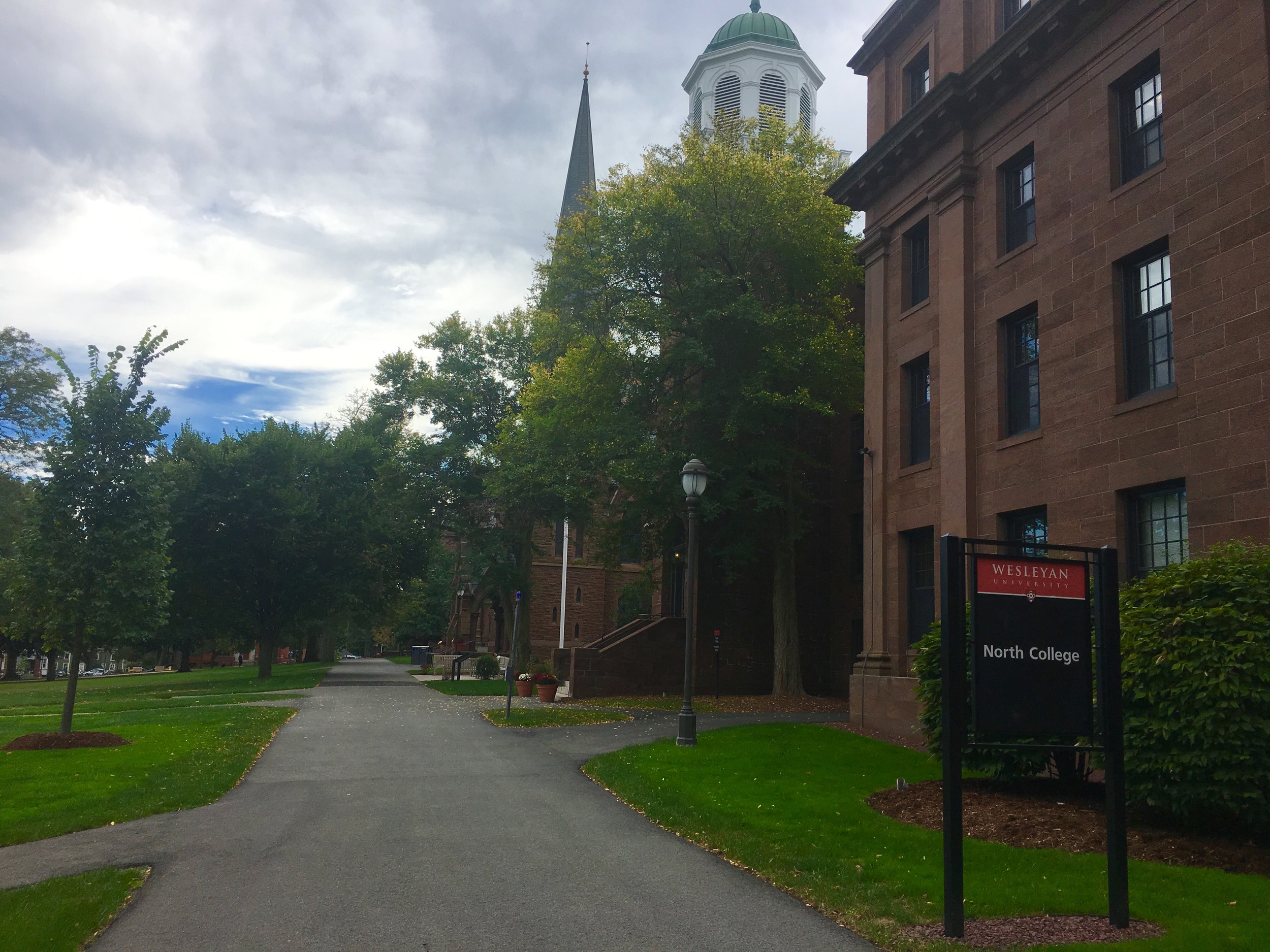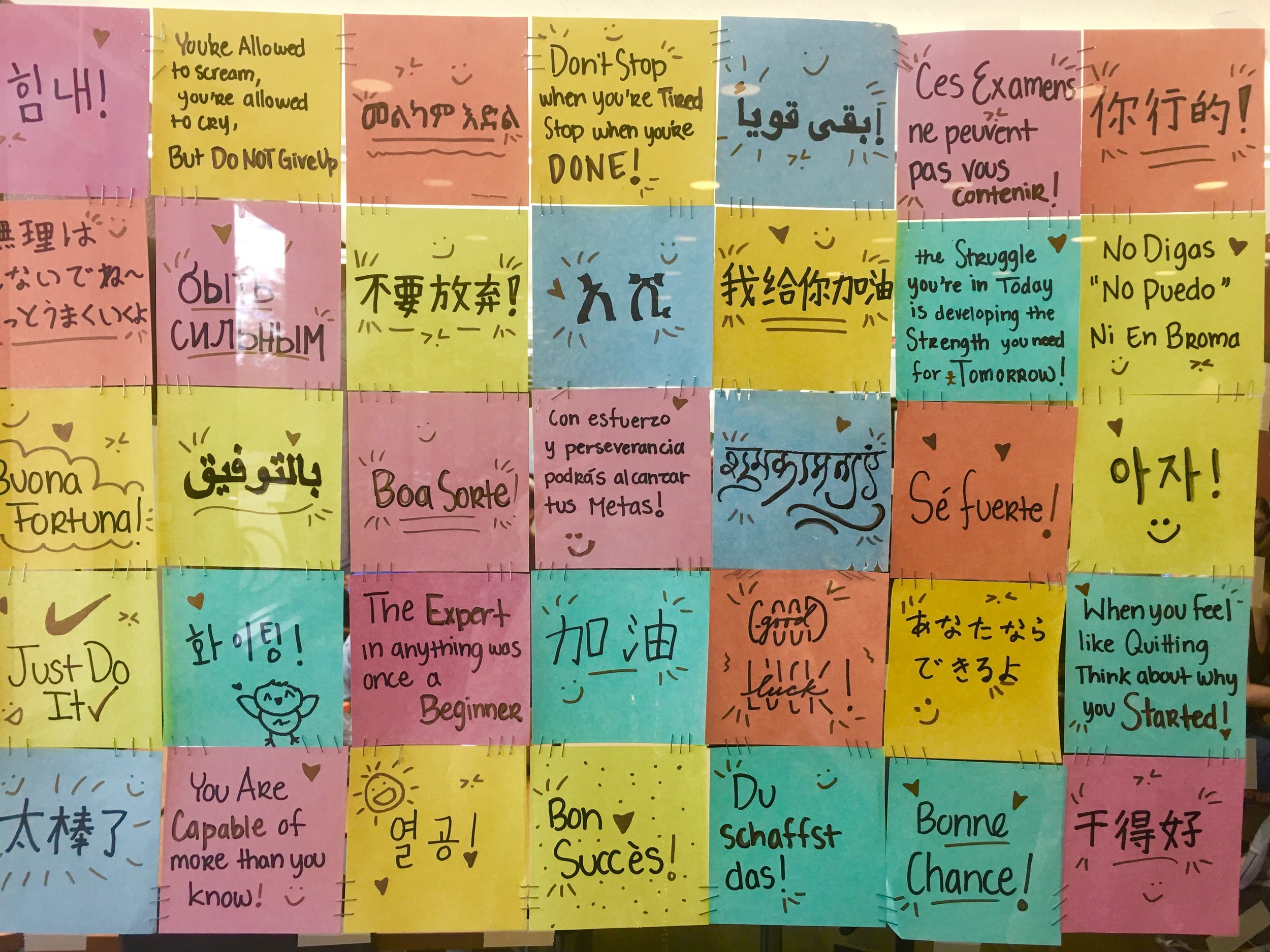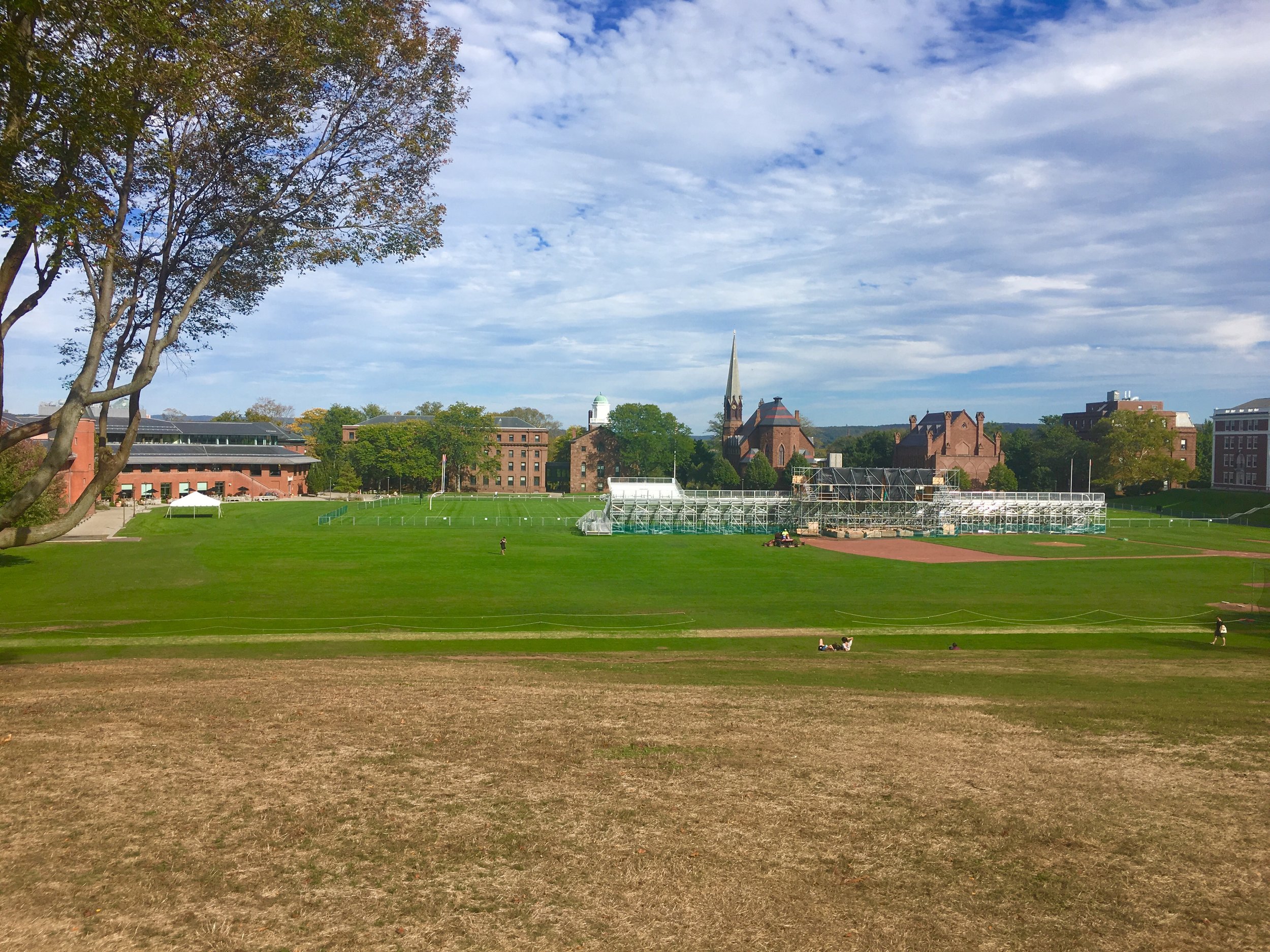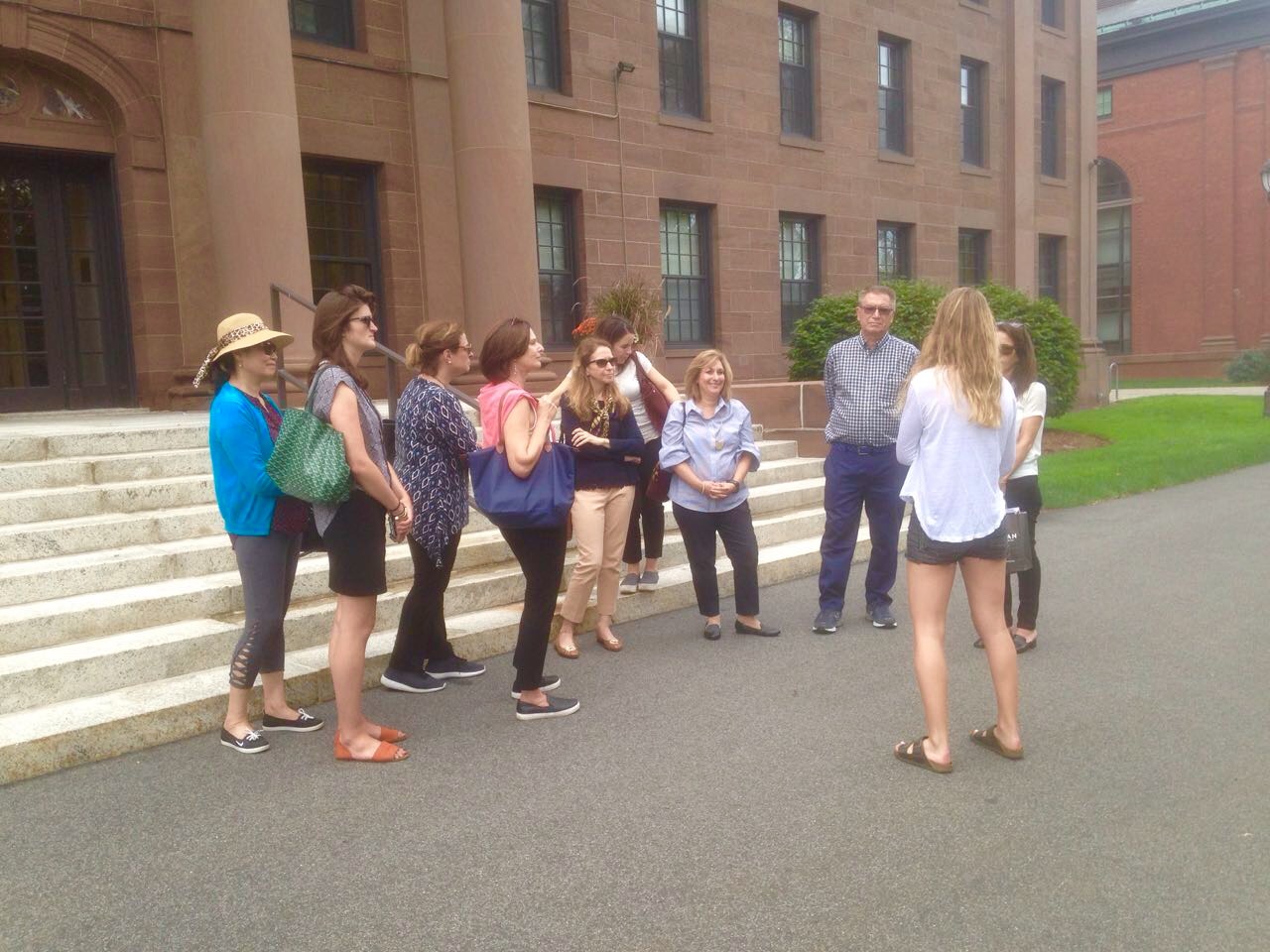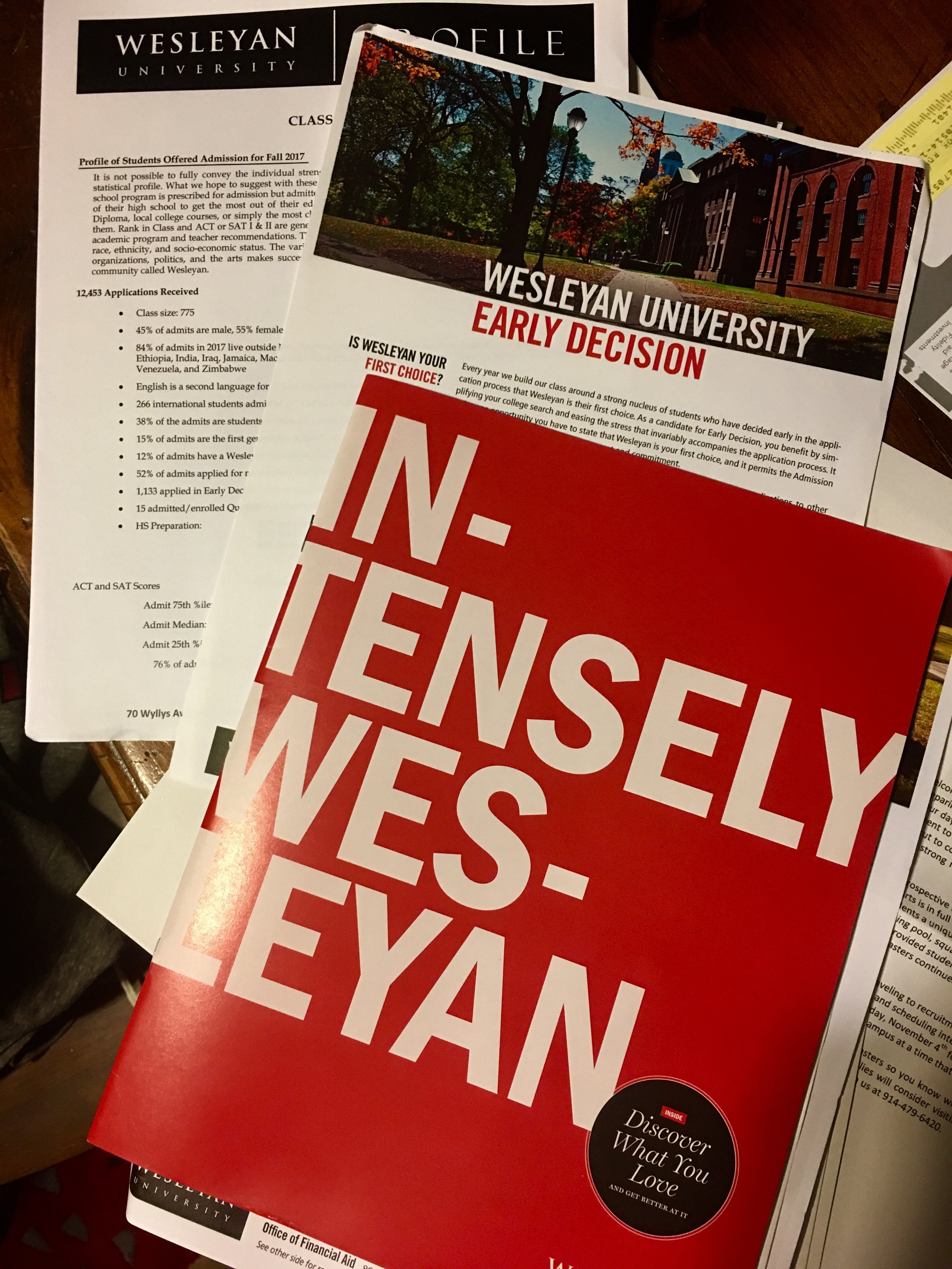Julia’s visit to UNC-Chapel Hill was a great one, thanks to a fantastic student tour guide, and a comprehensive information session.
"Carolina” as they call themselves claims the title of "first public university in the country” and since then has grown by leaps and bounds. It is home to 18,500 undergraduates, making it a public mid-sized university. In spite of its large size, 78% of classes have under 40 students, and first-year seminars help acclimate students to campus.
Most majors are the in College of Arts and Sciences, and most popular ones are Biology, Economics, and Psychology. Students can declare a major at any time, and in sophomore year students can apply for professional schools including business, media, and journalism.
The students at Carolina “bleed baby blue” and have so much pride for their school. Most famed for their basketball team success, there are many reasons students choose Carolina. The tour guide, who was an out-of-state junior from Florida told me that she picked Carolina over another unnamed school in St. Louis because she found Carolina students to be much less competitive, and much more friendly and collaborative.
Fun Facts:
-Carolina is ranked #1 in value by Kiplinger’s 13 years in a row!
-Need-blind admissions application reading, the university invests heavily in need-based aid, such that 60% of graduates leave with no debt
-30,000 internship opportunities
-60% of undergraduates do original research
-800+ student organizations
-The famous well on campus is the emblem for the NCAA and myth has it that if students drink from the well on the first day of classes, they will get a 4.0. The lines are very long beginning at midnight for a drink of water!
-Carolina has a 96% retention, 90% graduation rate, and 96% of graduates landed jobs or were in graduate school within 6 months

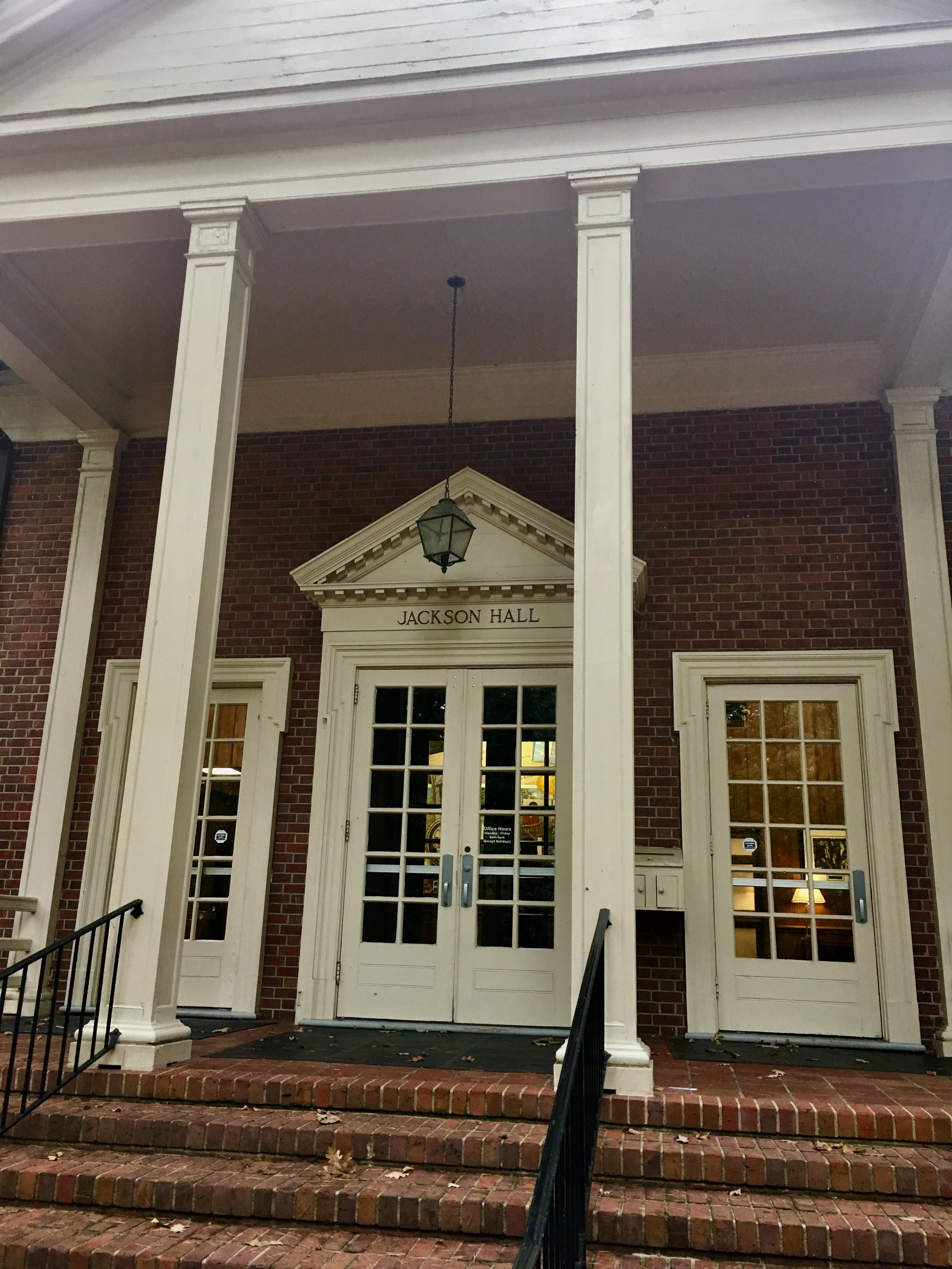
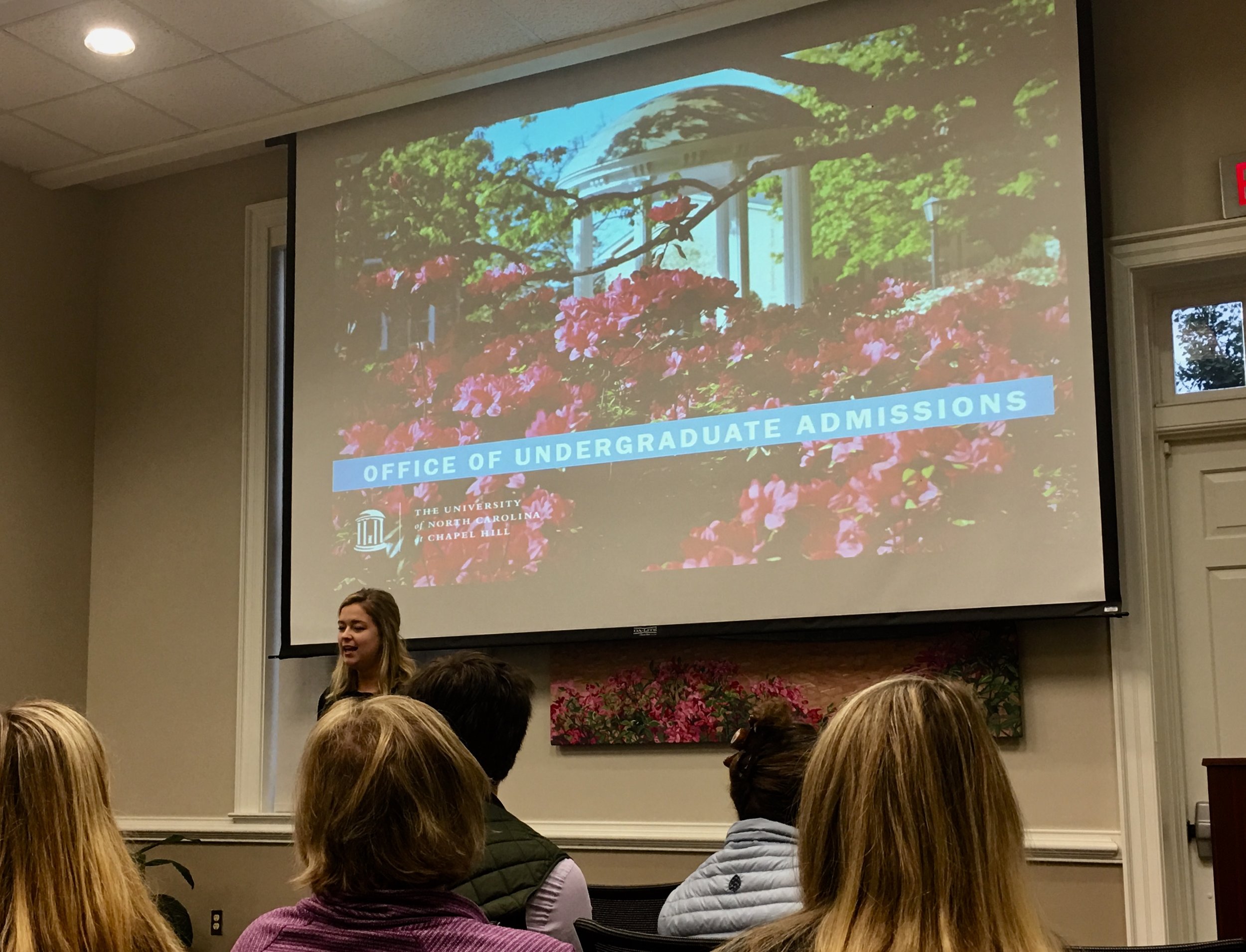











Carolina Demographics:
82% of incoming class must be IN-state, so out-of-state admissions is much more competitive
20% First-generation
34% Students of color
14% Covenant scholars, who receive a full scholarship
35% of North Carolina residence students come from rural counties
40 States, 31 countries
Tips on Applying from the Carolina Admissions Office:
-Don’t worry about writing “undecided” or wondering if a major is more competitive or not, you will not be penalized or compared more or less harshly (they know most students will change their major!)
-They do a "Holistic review” and read your full application line by line
-Advise students to "Bloom where you are planted” in terms of extra-curricular activities. They want to know what you are doing in that organization for extracurriculars, not that you are trying to be everything to everyone and everyone team/club/cause because that’s impossible! They would prefer to see growth, development and “roots” and “blooms” in what you have decided to stick with.
-Require the SAT or ACT, but not require writing, and they will superscore, but do not require subject tests, you can self-report the scores if you choose to include them
-A personal statement the admissions officer liked and mentioned: anything with specific examples that stand out: such as, a student was tired of being the quiet kid through middle school, and went out and bought only Hawaiian shirts which he wore through high school.
-1 Letter of recommendation is required, and they also prefer letters with specific examples, such as “This student is always bringing in relevant articles to share” or in an English class "students rush to get help from this student during peer editing sessions” to show how you stand out.







